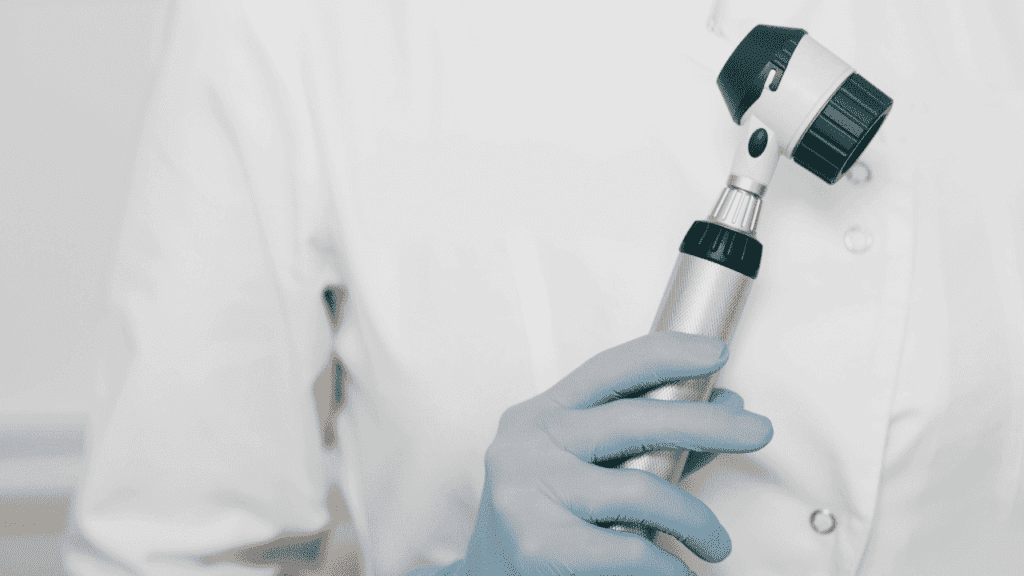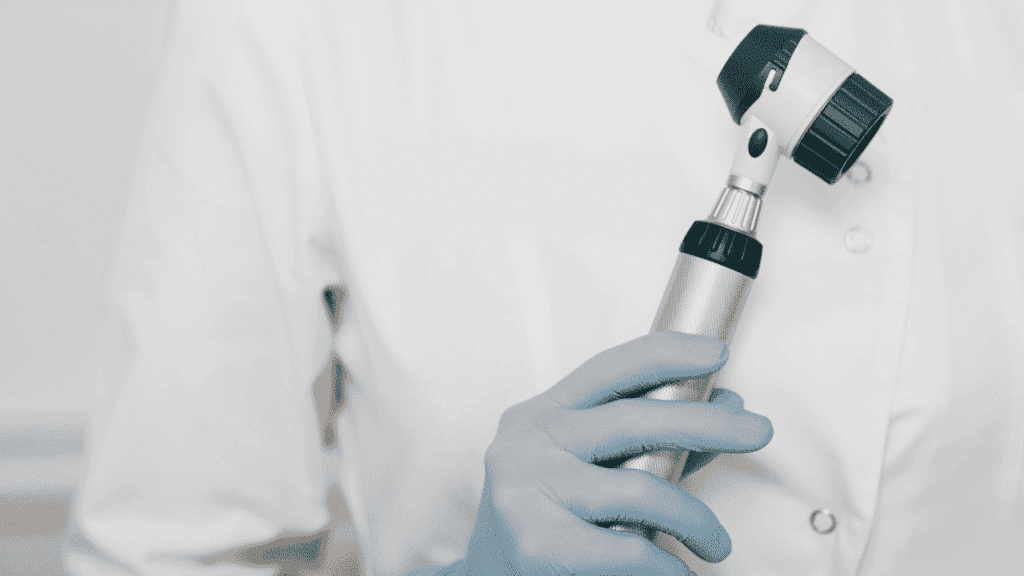1. Introduction
Dermatology, the specialized field focusing on skin, hair, and nail health, is experiencing significant growth in Pakistan. As awareness about skincare increases, so does the need for qualified professionals. A Bachelor’s in in this field provides a direct path to becoming a skincare specialist, bypassing the traditional MBBS route.
Table of Contents
This program focuses exclusively on skin health, equipping students to diagnose and treat a wide range of dermatological issues.
2. What is the Scope of BS Dermatology in Pakistan?
The career prospects for those pursuing a Bachelor’s in Dermatology are growing at a fast pace in Pakistan. Graduates can find fulfilling careers in various settings, including:
- Hospitals: Public and private hospitals offer opportunities for Skin health professionals to work alongside medical teams, providing specialized care to patients with skin conditions.
- Private Clinics: Many Skin health professionals choose to establish their own private clinics, offering personalized skincare consultations and treatments.
- Research Institutions: Those with a passion for advancing the field can contribute to research and development in in this field.
- Cosmetology Industry: The booming beauty industry welcomes Skin health professionals to provide expert advice and develop innovative skincare products.
Lifestyle changes, environmental pollution, and increasing awareness about skin health have all contributed to a surge in demand for dermatological services. Moreover, BS Dermatology jobs are not limited to Pakistan. With the global relevance of the field, graduates can explore international opportunities and contribute their expertise on a broader stage.
3. Salary of BS Dermatologists in Pakistan
Professionals with a Bachelor’s in Dermatology in Pakistan can expect competitive salaries that vary depending on experience and workplace. Entry-level salaries generally range from PKR 50,000 to 80,000 per month, with opportunities to grow to PKR 200,000 or more for those in private practice or specialized fields.

Private practice and consultancy work can offer additional income streams, making dermatology a financially rewarding career choice.
4. How to Become a Dermatologist in Pakistan?
To begin your career as a dermatologist in Pakistan, there are specific admission requirements you must meet. The primary pathway is through the BS Dermatology program. Here’s a breakdown of the process:
- Educational Requirements: You need to have completed FSC (Pre-Medical) with a minimum percentage specified by the university you are applying to.
- MDCAT: While MDCAT is mandatory for MBBS, it’s not required for BS Dermatology.
- Admission Process: Universities offering BS Dermatology usually conduct their own entrance tests or interviews to assess candidates’ aptitude and suitability for the program.
Once you complete your degree, you can further specialize through post-graduation programs or fellowships, enhancing your expertise and career prospects.
5. Can I Become a Dermatologist Without MBBS?
Yes, you can become a dermatologist in Pakistan without pursuing an MBBS degree. The BS Dermatology program offers a direct route into the field. While Skin health professionals can work in clinics and hospitals and provide skincare treatments, the title of “Doctor” is reserved for those who have completed MBBS and specialized in in this field. However, the career scope for BS Dermatologists is vast, and they can play a crucial role in addressing the growing demand for skin care specialists.
6. Is MDCAT Necessary for Dermatology in Pakistan?
No, MDCAT is not necessary for pursuing BS Dermatology in Pakistan. The Medical and Dental College Admission Test (MDCAT) is a prerequisite for admission to MBBS programs. However, the degree has its own set of admission requirements, which typically involve a minimum percentage in FSC (Pre-Medical) and an entrance test or interview conducted by the university.
7. Best Universities Offering BS Dermatology in Pakistan
Several universities in Pakistan offer BS Dermatology programs. Some of the top institutions include:
- University of Health Sciences (UHS), Lahore
- Dow University of Health Sciences (DUHS), Karachi
- King Edward Medical University (KEMU), Lahore
- Riphah International University, Islamabad
- Foundation University, Islamabad
These universities have well-established dermatology departments, experienced faculty, and state-of-the-art facilities to provide students with a comprehensive education in skin health.
8. Admission Requirements and Eligibility for BS Dermatology
The BS Dermatology admission 2024 criteria may vary slightly among different universities. However, the general eligibility requirements include:
- FSC (Pre-Medical) with a minimum percentage (usually 60% or above).
- Passing an entrance test or interview conducted by the university.
It’s crucial to check the specific BS Dermatology eligibility criteria and admission deadlines for each university you are interested in.
9. BS Dermatology vs. Other Medical Fields
Choosing the right medical field is a crucial decision for students. Here’s a brief comparison of BS Dermatology with other popular options:
- BS Dermatology vs MBBS: BS Dermatology offers a focused pathway to become a skin care specialist, while MBBS provides a broader medical education, allowing for specialization in various fields, including this one.
- BS Dermatology vs DPT: BS Dermatology focuses on skin health, while DPT (Doctor of Physical Therapy) deals with rehabilitation and physical function.
- BS Dermatology vs Pharmacy: BS Dermatology involves diagnosing and treating skin conditions, whereas Pharmacy focuses on medication dispensing and management.
Each field has its unique scope and career prospects. It’s essential to consider your interests, aptitude, and long-term goals before making a decision.
10. Can You Open a Clinic After BS Dermatology?
Yes, you can open a clinic after completing BS Dermatology in Pakistan. However, certain legal and professional requirements need to be fulfilled. You might need to obtain a license from the relevant healthcare authorities and register your clinic. Alternatively, you can work under the supervision of an MBBS-certified doctor or join an established skin specialist practice.

11. Conclusion: The Future of BS Dermatology in Pakistan
The future of BS Dermatology in Pakistan is bright. With increasing awareness about skincare and the rising prevalence of skin conditions, the demand for qualified dermatologists is set to soar. This field offers a promising career path for those passionate about skin health. As the field continues to evolve, BS Dermatologists will play a crucial role in providing specialized care and contributing to the overall well-being of individuals. If you have a keen interest in skin health and aspire to make a difference in people’s lives, BS Dermatology might be the perfect career choice for you.
FAQs
-
What are the career prospects after completing BS Dermatology in Pakistan?
BS Dermatology graduates in Pakistan have a wide range of career opportunities, including working in hospitals, private clinics, research institutions, and the cosmetology industry. They can also explore international opportunities due to the global relevance of the field.
-
What is the average salary of a BS Dermatologist in Pakistan?
The average salary of a BS Dermatologist in Pakistan varies depending on experience and work setting. Entry-level dermatologists can expect to earn between PKR 50,000 to 80,000 per month, while experienced professionals can earn significantly more, reaching PKR 200,000 or higher.
-
What are the admission requirements for BS Dermatology in Pakistan?
The general admission requirements for BS Dermatology in Pakistan include completing FSC (Pre-Medical) with a minimum percentage (usually 60% or above) and passing an entrance test or interview conducted by the university.
-
Is MDCAT required for BS Dermatology in Pakistan?
No, MDCAT is not required for BS Dermatology in Pakistan. It is only mandatory for admission to MBBS programs.
-
Which universities offer BS Dermatology programs in Pakistan?
Several universities in Pakistan offer BS Dermatology programs, including the University of Health Sciences (UHS), Lahore; Dow University of Health Sciences (DUHS), Karachi; King Edward Medical University (KEMU), Lahore; Riphah International University, Islamabad; and Foundation University, Islamabad.
-
Can I open my own clinic after completing BS Dermatology?
Yes, you can open your own clinic after completing BS Dermatology in Pakistan, subject to fulfilling certain legal and professional requirements. You might need to obtain a license and register your clinic.
-
What is the difference between BS Dermatology and MBBS in terms of becoming a dermatologist?
BS Dermatology offers a focused pathway to become a skin care specialist, while MBBS provides a broader medical education, allowing for specialization in various fields, including dermatology. BS Dermatologists can work in clinics and hospitals and provide skincare treatments, but the title of “Doctor” is reserved for those who have completed MBBS and specialized in dermatology.
-
What is the future scope of BS Dermatology in Pakistan?
The future scope of BS Dermatology in Pakistan is promising. With increasing awareness about skincare and the rising prevalence of skin conditions, the demand for qualified dermatologists is expected to grow significantly. BS Dermatology offers a rewarding career path for those passionate about skin health.
